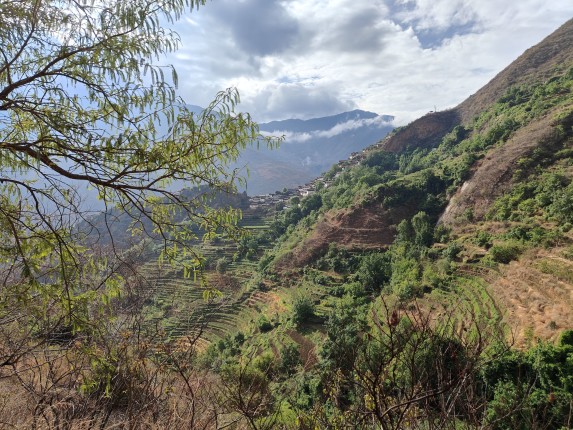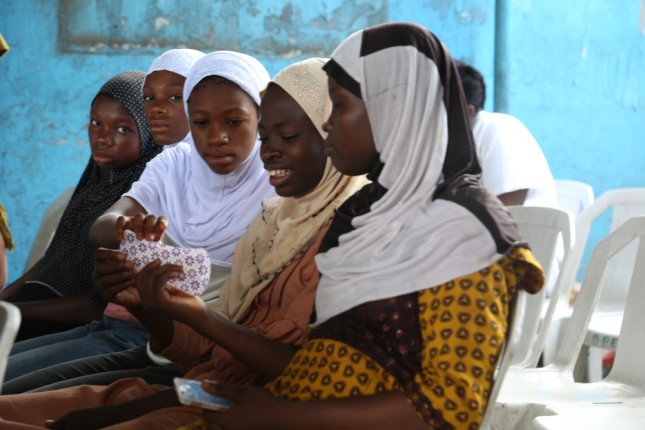-
ECSP Weekly Watch | August 21 – 25
›
A window into what we are reading at the Wilson Center’s Environmental Change and Security Program
Deforestation Dynamics in Colombia: The Role of Armed Groups
A 29% drop in deforestation in Colombia in 2022 was labeled as a victory for President Gustavo Petro. Yet there is another reason behind the decrease. Armed groups, such as the Estado Mayor Central (EMC), have imposed logging bans in areas under their control, and levy fines amounting to 251 dollars per hectare.
-
How China’s Mountain Farmers are Coping with Climate Change
›China Environment Forum // Cool Agriculture // Guest Contributor // August 24, 2023 // By Miaomiao (Mira) Qi
Faced with the grim situation of normalized extreme heat and drought, it is imperative for China to improve agricultural resilience to climate change. Rural communities, often led by women, are using seed banks and traditional techniques to boost local crop diversity and food security in order to adapt to climate change.
-
New Global Health & Gender Policy Brief: Menstrual Health and Management
›
Of the 1.8 billion people who menstruate each month, 500 million are unable to adequately manage menstruation, leading to health, economic, and safety concerns. Menstruation remains a taboo topic that is often overlooked within health sectors. But recent attention from global health, international development, women’s empowerment, and humanitarian organizations has increased awareness for the impact of menstruation on women’s participation in societies and economies.
-
El Niño and Militarized Fisheries Disputes in the East and South China Seas
›
Earlier this summer, the Armed Forces of the Philippines spotted dozens of Chinese fishing vessels in—or very near to—the Philippines’ exclusive economic zone. This influx occurred just weeks after the US National Oceanic and Atmospheric Administration announced, “El Niño is here.”
-
Q&A: Dr. Jeff Colgan on the Energy Security Impacts of Russia’s War in Ukraine
›
Dr. Jeff Colgan is Director of the Climate Solutions Lab at the Watson Institute for Public and International Affairs at Brown University, and a keen observer of the interplay between energy and security. His new white paper, “Letting Europe’s Energy Crisis Go to Waste: The Ukraine War’s Massive Fossil Fuel Costs Fail to Accelerate Renewables,” co-authored by Alexander S. Gard-Murray and Miriam Hinthorn, offers a new window into how an event with the broad potential to reshape energy policy to more sustainable ends has failed to meet the moment. Colgan spoke to us about the institute’s new research and the lessons learned about conflict’s influence on the energy transition more than a year into the Ukraine conflict.
-
ECSP Weekly Watch | August 14 – 18
›
A window into what we are reading at the Wilson Center’s Environmental Change and Security Program
Thirst for Relief: Prolonged Drought Intensifies Afghanistan’s Humanitarian Crisis
Afghanistan is the world’s sixth most affected country by climate-related threats—and its present acute challenge is water scarcity, intensified by climate change. The country is heavily reliant on agriculture, which makes up a third of its GDP.
-
Charting Complex Currents: The Qush Tepa Canal and Central Asia’s Water
›
The riparian states of the Aral Sea Basin are experiencing growing water demands, land, and environmental degradation, aging and inefficient infrastructure, and the rapid melting of glaciers. These increasing challenges are compounded by the lack of an effective transboundary water governance system.
-
China Leads the Race to the Bottom: Deep Sea Mining for Critical Minerals
›In December 2022, at the Nansha District port in the Pearl River Delta, the China State Shipbuilding Corporation unveiled China’s first oceanographic drilling ship—capable of mining 10,000 meters deep. This launch showcased China’s rapid advances as a major player in the global race to extract critical minerals at the bottom of the ocean.
Showing posts from category *Main.










